Report】JICA training course "Waste Management for Marine Litter Control (B)" was conducted in FY2023.
In recent years, awareness of the marine litter problem, especially the problem of marine plastic litter, has been rapidly increasing on a global scale, and international cooperation is being strengthened toward the creation of a legally binding international document (convention) on plastic pollution. On the other hand, in developing countries, waste generated on land is discharged into the ocean due to inappropriate management, and there is a lack of progress in understanding the actual conditions necessary for marine litter countermeasures, etc. Various issues are piling up toward solving the marine litter problem.
Under these circumstances, ICETT was commissioned by the Japan International Cooperation Agency (JICA) to conduct a training course on "Waste Management for Marine Litter Countermeasures (B)" in FY2023 as part of its contribution to the promotion of plastic resource recycling and other initiatives that contribute to the prevention of marine litter. This was the fourth time this training program was implemented since it was commissioned in FY2020. Previously, due to the Corona Disaster, the training had been conducted either only by remote training or by a combination of remote training and in-coming training, but for the first time, the training was conducted only in-coming training.
This training program was designed to comprehensively understand the marine litter problem from the viewpoints of both land and sea, and to examine solutions to the problem from multiple perspectives, including legal measures and technologies. Since it is important to control the generation of marine litter on land in order to fundamentally solve the problem, the training program focused on waste management and plastic resource recycling, which contribute to the reduction of marine litter on land. On the other hand, the impact of marine litter on the environment, ecosystem, and economy, as well as the actual status of marine litter and monitoring methods were also included as another axis of the training program. Through lectures, tours, and discussions, participants deepened their understanding of marine litter issues and countermeasures in Japan and around the world. They also learned about the responsibilities and roles of various sectors, such as government agencies, companies, research institutes, and citizen groups, and the proactive efforts they are making based on these responsibilities. On the last day of the training, the participants presented their action plans for post-return activities based on what they learned during the training.
Through this training program, the trainees were able to meet colleagues who are working toward the same goal, although from different countries. During the course of the training, the efforts made in other countries and the opinions of other trainees provided important reference and motivation for further efforts in their own countries. It is expected that the trainees will continue to enhance each other's efforts to solve the marine litter problem, including the implementation of the Action Plan, based on their common experience in Japan.
We would like to take this opportunity to express our deepest gratitude to all the lecturers and visitors for their great cooperation in this training program, and to the JICA officials for their guidance and support in the implementation of this training program.
training period
Monday, October 2 - Friday, October 27, 2023
trainee
1 each from Brazil, Egypt, and Jamaica (national and local government officials) 3 in total
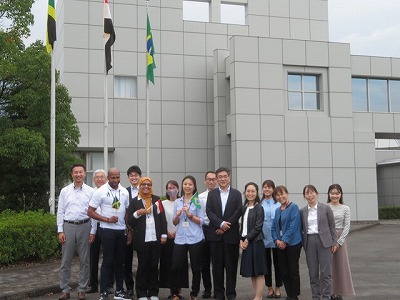 | 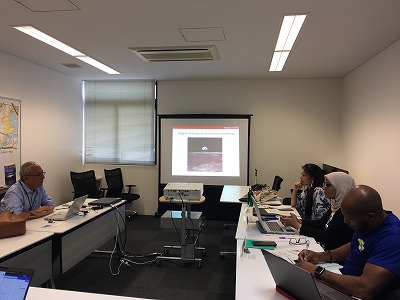 | 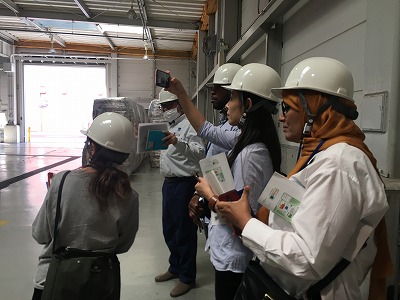 |
| Group photo (in front of ICETT) | lecture | Site visit (container and packaging recycling) |
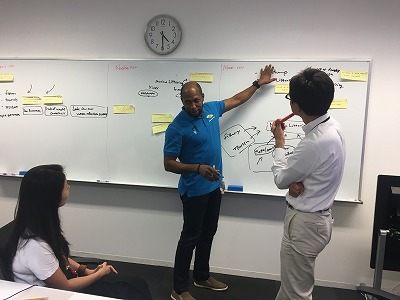 | 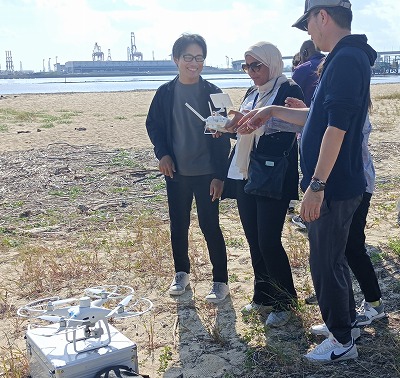 | 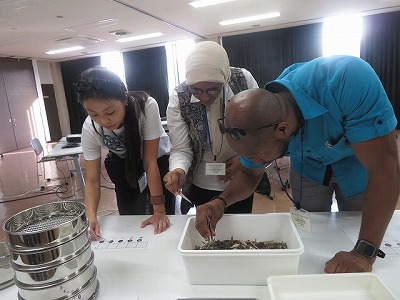 |
| workshop | Practical training (marine debris surveying and monitoring) | Practical training (microplastic survey) |
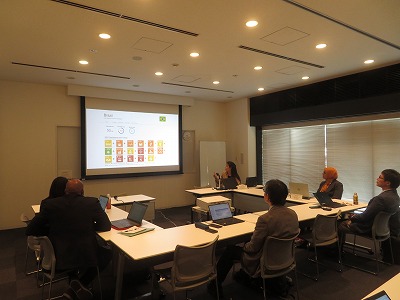 | 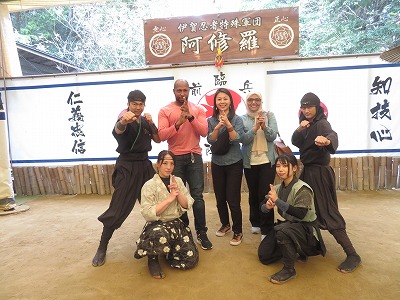 |  |
| Action Plan Presentation | Japanese cultural experience (Iga Ninja Museum) | Japanese cultural experience (tea picking) |


